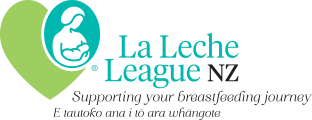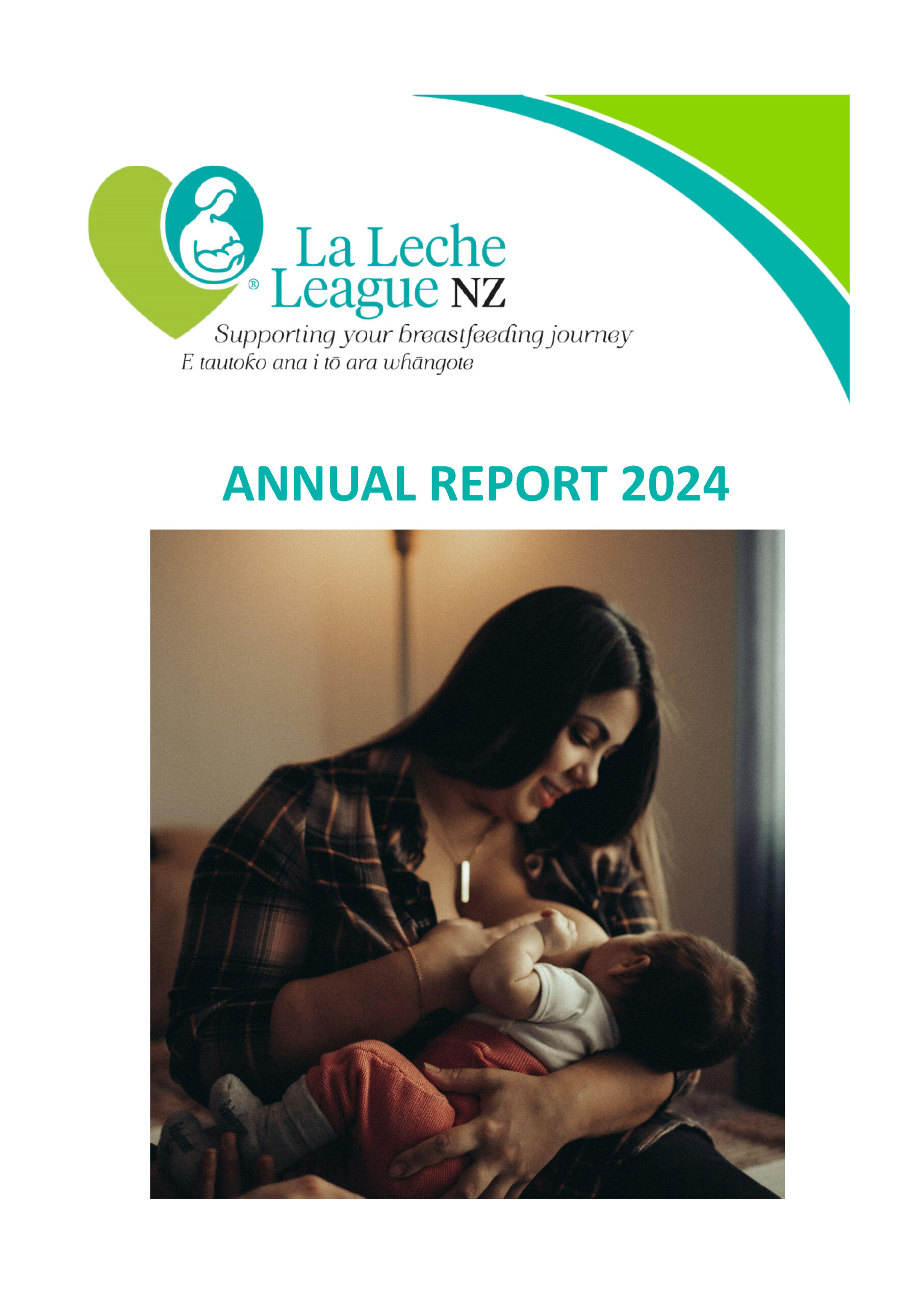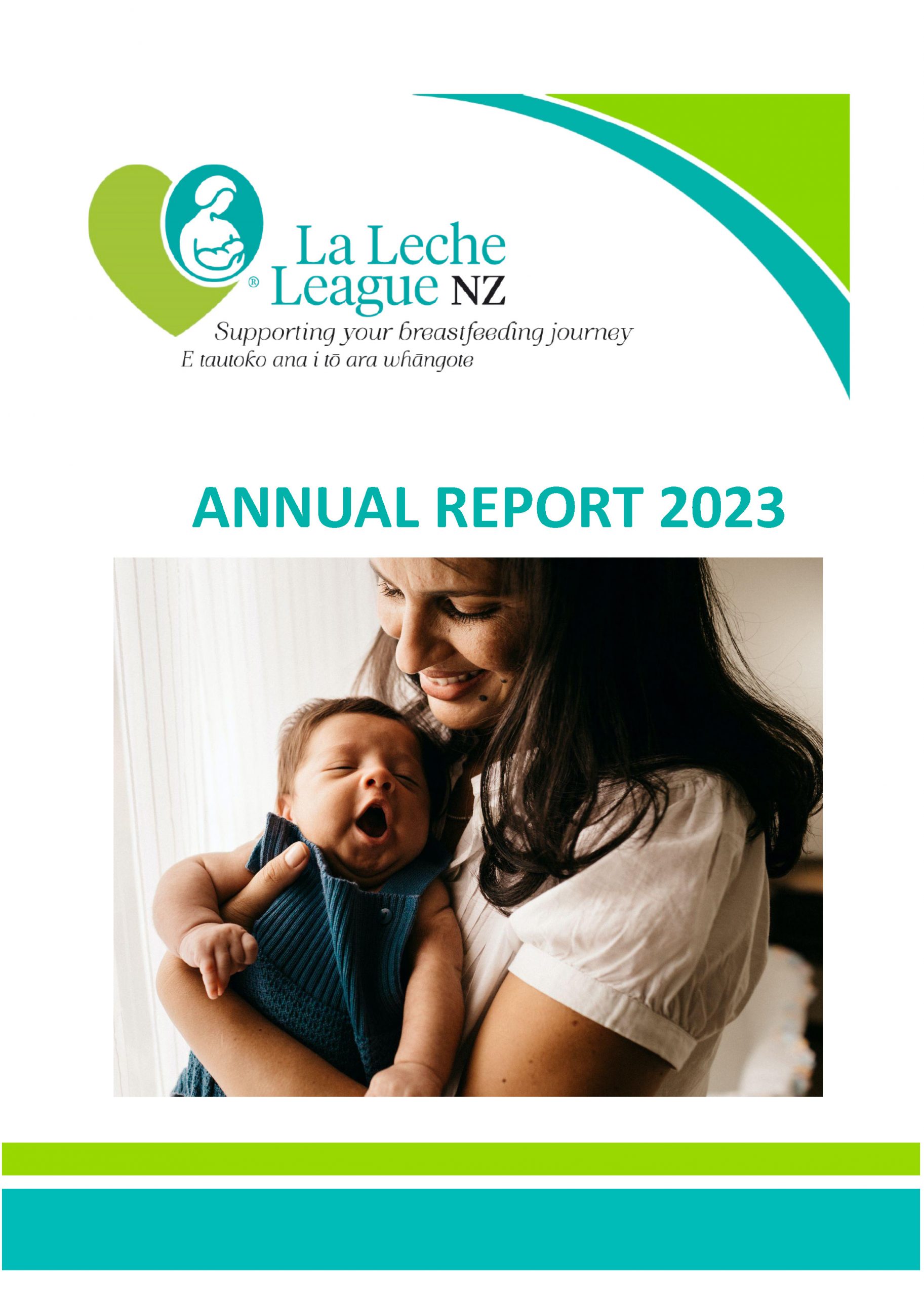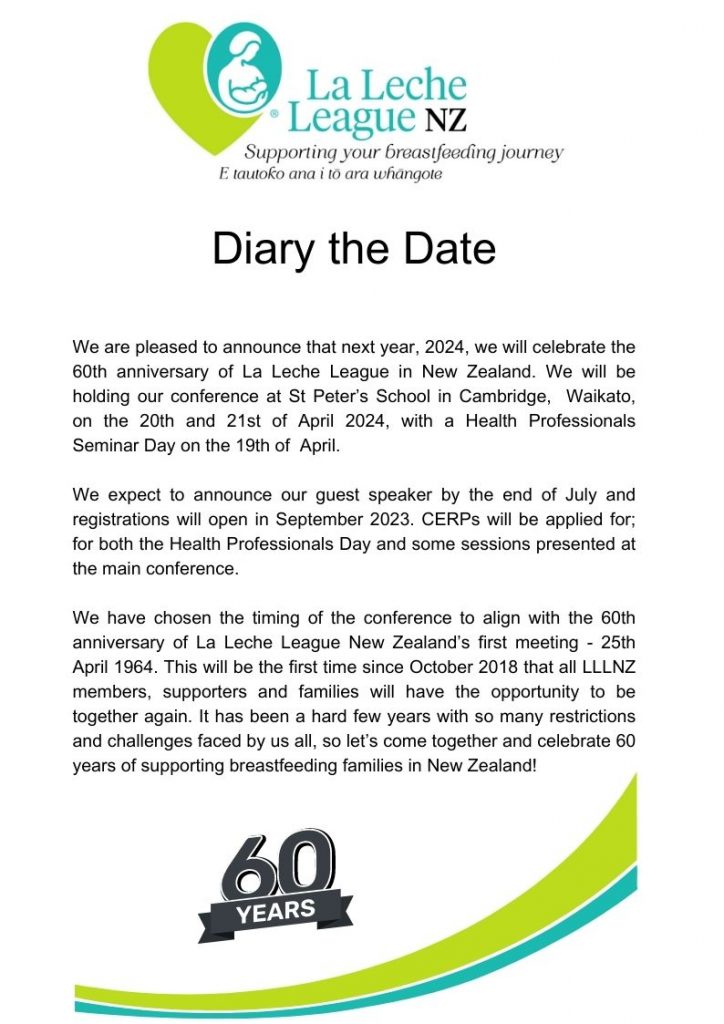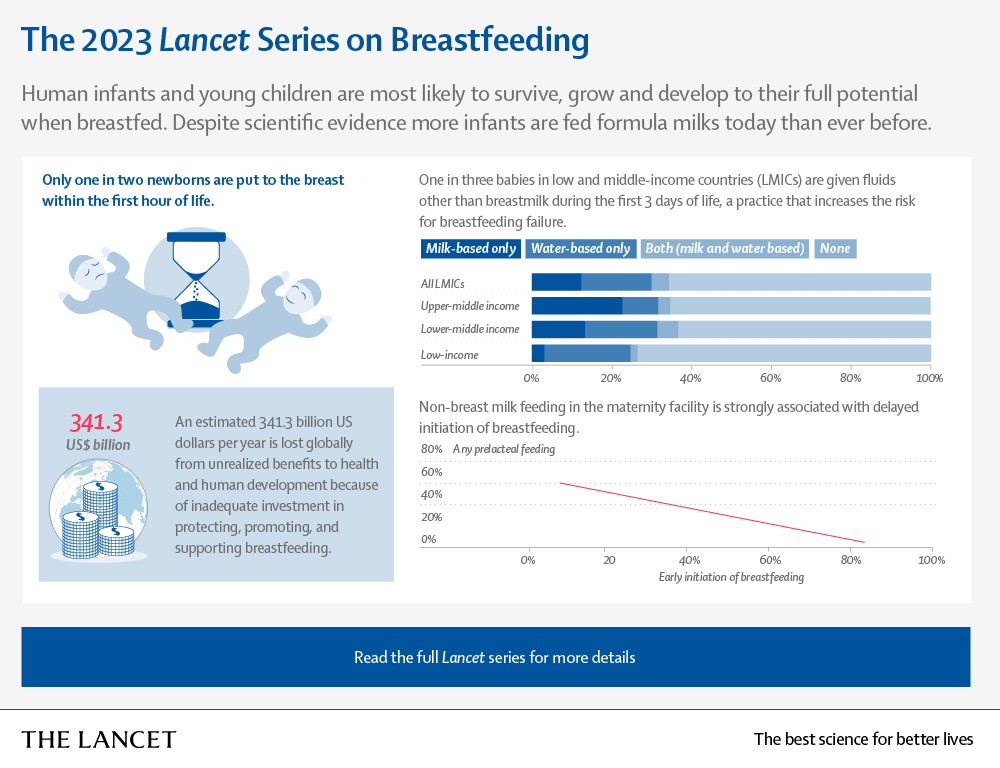LLLNZ Statement regarding inclusive language
In response to recent enquiries the following statement has been issued here
The Lancet 2023 Series on Breastfeeding
Key messages from The Lancet 2023 Series on Breastfeeding
The 3-paper Lancet Series explores how breastfeeding is undervalued and underinvested in by
governments and public health while the vulnerabilities of women and families are exploited by the
commercial milk formula industry. It finds society, politics, and economics all contribute to why fewer
than half of infants and young children globally are breastfed as recommended by WHO. Authors call
for breastfeeding – a key component of infant and young child nutrition and development – to be
society’s collective responsibility and for it to be effectively promoted, supported and protected.
The three papers:
- How baby behaviours – such as sleep and crying – are misunderstood and misconstrued to
undermine breastfeeding, but multi-sectoral interventions can protect its extensive health impacts. - How the formula marketing ‘playbook’ targets parents, health professionals and politicians and
undermines the health and rights of children and mothers - How power imbalances and political and economic structures determine feeding practices,
women’s rights and health outcomes
The current situation:
The great majority of women in the world are choosing to breastfeed but most are hindered from
being able to do so as recommended.
Only one in two newborns globally are put to the breast within the first hour of life. And one in
three babies in low and middle-income countries are given other fluids during the first 3 days after
birth, a behaviour strongly associated with delaying the start of breastfeeding and shorter
breastfeeding durations.
Two reasons given by many women for using formula milk include the belief that they are unable to
produce sufficient breast milk and the misunderstanding that unsettled baby behaviour – or
how sleep patterns or crying can be part of normal development – is a sign that extra feeding is
required. These misconceptions can be prevented or addressed successfully with appropriate
support and without the need of formula milk.
In 2020, formula milk products generated US$55 billion in sales; with US$2.6-3.5 billion, at least,
invested to market these products. Yet, formula milks for children more than 12 months of age are not
necessary to provide a complete and nutritious diet and often contain additional harmful sugars.
Governments do not recognise breastfeeding and other forms of care work, mainly done by women,
as making vital contributions to the economy. In 2020 the global monetary value of breastfeeding
was estimated to be $US3.6 trillion, but the international rules for measuring GDP exclude
breastfeeding.
More than half a billion working women globally are not entitled to adequate maternity
protection that would support breastfeeding women.
Poor breastfeeding promotion, protection and support in healthcare systems is due to an
inadequately trained workforce, lack of women-centred obstetric and maternity care, marketing and
influence of the commercial milk formula industry, and insufficient public funding and investment.
The commercial milk formula industry:
The sale of formula milk is an expanding multi-billion-dollar industry. The global formula milk
market is dominated by a small number of trans-national corporations with considerable economic
power that is used to drive up demand using a sophisticated marketing playbook, made more
influential and dynamic through digital platforms and technology, and also includes political lobbying
and interference with international regulatory processes.
The marketing tactics of formula milk companies include exploiting the emotions and
aspirations of parents, and using misleading and false claims to generate sales at the expense of
the health and rights of families, women, and children.
The marketing takes advantage of parents’ worries, such as those about unsettled baby behaviour,
and suggests, without the evidence expected of health interventions, that they can be resolved by
buying expensive, specialised products. They similarly claim that additives to standard formula
products further improve brain development, growth and immunity – yet published systematic reviews
(of available evidence) do not support these claims.
Formula milk companies in all regions regularly violate the International Code of Marketing of
Breast-Milk Substitutes and subsequent Resolutions. Furthermore, the formula milk industry
engages in lobbying to block implementation and enforcement of the WHO’s Code.
Formula milk companies fund and influence health professionals, science and medical organisations,
and policymakers – with multiple approaches that involve unacceptable conflicts of interest.
The negative environmental impacts associated with the industry are substantial, far exceeding
those associated with moderate increases in the caloric and water needs of breastfeeding mothers.
These include greenhouse gas emissions, water use and pollution, and packaging waste.
Although 97% of the formula milk industry-traded share value is owned by shareholders in
high-income countries, the health, environmental and economic harms associated with the milk
formula industry disproportionately affect low-income and middle-income countries. This can be
viewed as a form of wealth extraction and contributes to widening socioeconomic inequality
between poorer and wealthier segments of the world.
Through inaction and inadequate legislation, Governments allow formula milk companies and their
products to damage health, family relationships and the environment without any repercussions.
Globally, there is inadequate regulation of the formula milk industry’s unethical marketing and tax
avoidance practices.
Between 1995 and 2019, there were 245 interventions made in the World Trade Organization by milk
formula and dairy-producing member states concerning the regulation of formula milk marketing,
labelling, or safety in another member state. These interventions have substantially weakened
national breastfeeding protection laws.
Recommendations:
An end to the marketing of formula milk via a legal global treaty, which also contains robust
policies to limit corporate power and protect policy from industry influence.
Governments to provide accurate, objective, and timely information about breastfeeding, better
practical support, and skills development for healthcare professionals, parents and communities.
Governments and society to invest in maternity protection and enforce legislation prohibiting
discrimination against women during maternity.
Healthcare systems to prioritise women-centred and culturally appropriate breastfeeding care and
support based on a well-trained and empowered workforce and end undue formula milk industry
influence over infant nutrition research, health workforce training and education and other professional
activities.
Increased regulation and transparency around lobbying to decrease the influence of formula milk
companies. Health organisations to reject funding from the formula milk industry.
Those working on world trade, human rights, environmental protection, tax justice and social inequity
to incorporate global breastfeeding advancement into their work.
To read all three papers please got to http://www.thelancet.com/series/Breastfeeding-2023
